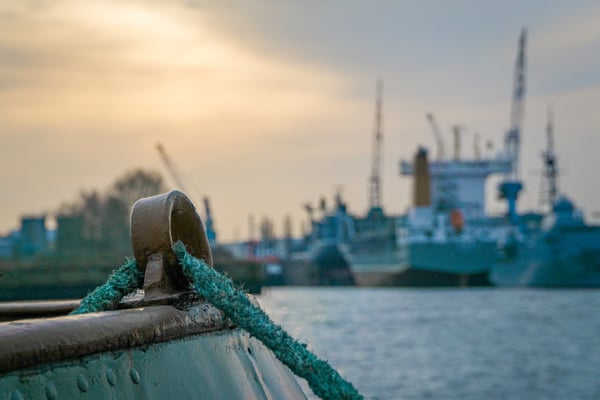

About 90% of world trade is transported by sea, but COVID-19 has led to major disruptions in the global supply chain. As the coronavirus leads to more travel bans, many essential transit points across the world are now on lockdown. As a result, many crew members are being overworked as essential crew changes have become burdensome and quite literally impossible in many instances.
COVID-19 Makes Crew Changes Inconceivable
Many shipowners rely on the free movement of crew members to keep their ships moving. According to the International Chamber of Shipping Association (ICS), there are 1.2 million sailors at sea at any given time. This means that under normal circumstances, shipowners are rotating approximately 100,000 crew members each month.
Crew rotation has always been a complex operation as hundreds of thousands of sailors fly around the world to connect with docked ships in remote locations. Mariners oftentimes spend many months at sea with only occasional breaks on land while containers and goods are loaded or unloaded. This means fresh crews of seafarers are needed in order to alternate with tired sailors who have already been at sea for many months. Unfortunately, global travel restrictions due to the coronavirus have made such crew rotations difficult, it not impossible altogether.
- China has banned entry to all foreign nationals
- Singapore has approved crew changes but banned most inbound flights
- India is currently under lockdown and is not allowing crew changes
- Greece has suspended all shore leave and crew changes
The industrywide delay in crew changes began in February when the coronavirus first struck China, leaving dozens of ships stranded in the ocean. Guy Platten, the secretary-general of the ICS, says that “several big operations have suspended crew changes through the middle of April”. As the crisis continues to develop across the globe, operators of tankers and container ships everywhere risk having the virus spread on idled vessels.
Have Sailors Been Deemed, Essential Workers?
The United Nations (UN) and the International Transport Worker’s Federation (ITF) are asking governments to designate sailors as “essential” workers during the pandemic to ensure that mariners are still able to travel and hopefully relieve tired and diminished crews. The Coast Guard recently published the Marine Safety Information Bulletin 11-20 to provide ship owners with clarifications for determining which Marine Transportation System (MTS) workers are considered essential. You can find this resource by clicking here.
Be that as it may, offshore vessels are considered hotbeds for the virus due to their close-quarter infrastructure. Right now, it is unclear how governments will respond as the pandemic continues to unravel. In a statement to gCaptain, General Secretary at the ITF, Stephan Cotton, said that “the current deadlock not only threatens seafarers’ personal health and wellbeing but also increases the risk of marine accidents.” As COVID-19 continues disrupting the supply chain for maritime companies, sailors risk injury from fatigue as ships remain jammed.
Many seafarers are being forced to face a grim reality: it may be weeks if not months before they will be able to return home.
Coronavirus & Negligence Under the Jones Act
The Jones Act, also known as the Merchant Marine Act of 1920, is an old federal law that protects injured seamen after on-the-job injuries. Unlike land-based on-the-job injuries where workers are protected under worker’s compensation laws, seamen are protected under the Jones Act and are entitled to special privileges. Learn more about the Jones Act by clicking here.
Any sailor who contracts COVID-19 may have a Jones Act claim for negligence. Because COVID-19 can lead to serious respiratory complications and in many cases has resulted in death, ill seamen may have a negligence claim against their employer if their injury or illness came as a result of carelessness or a negligent act by their employer or a coworker - such as the mismanagement of the COVID-19 outbreak.
The ICS recently released an important resource for all ship operators providing guidance to shipowners on how to handle the coronavirus outbreak - everything from port entry restrictions and pre-boarding screening to precautions at the ship’s medical facility and isolation protocols. Seafarers can find this resource by clicking here. Failing to abide by these guidelines may constitute an act of negligence under the Jones Act.
If you have been injured or have contracted COVID-19 while working offshore due to the negligence of your employer, do not hesitate to contact an experienced maritime attorney. The outcome of your case may hinge on your ability to act quickly. Our law firm has decades of experience battling maritime companies. Call 713-224-7800 or click here to contact us.

